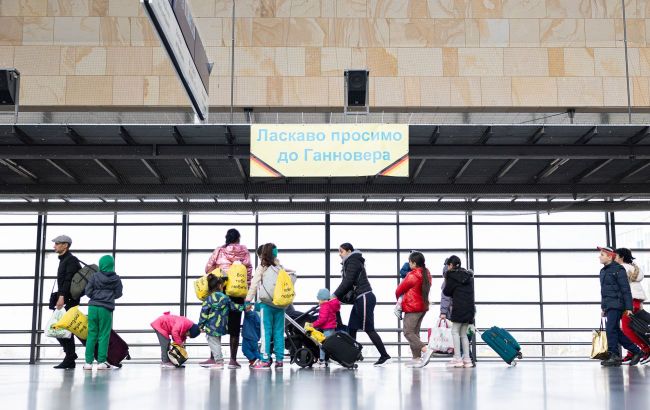Europe concerned about Ukrainian refugees returning home, says demographer
 Photo: Refugees in Hanover, Germany (Getty Images)
Photo: Refugees in Hanover, Germany (Getty Images)
Many Ukrainians have left the country and are integrating into Europe. However, whether these people will return depends less on the establishment of new public institutions and more on the approach to migration issues, believes Oleksandr Hladun, deputy director of the Institute for Demography and Life Quality Problems of the National Academy of Sciences of Ukraine.
Migration is a complex phenomenon directly related to a country’s economic attractiveness, living conditions, labor market, and social guarantees.
"Although Western European countries actively attract migrants and compete for our migrants, Ukrainians share similar culture and behavior. Yes, in different countries and even regions, people are different, but mentally we are Europeans. And what are they doing now in Europe? They are opening language courses for them, teaching our children, and encouraging adults to find employment," noted Hladun.
According to Eurostat, 94% of Ukrainians in the EU are of working age, providing a stable influx of taxes to local budgets. Only 6% are people aged 64 and older.
Europe has an interest in keeping Ukrainians there and preventing them from returning to their homeland, which poses a serious challenge for Ukraine in restoring its population and stabilizing the demographic situation.
It is worth noting that approximately 35% of Ukrainian refugees in Europe plan to return to Ukraine as soon as it becomes safe. However, in the short term, a minority of Ukrainians wish to go home.
In addition, over 4.1 million people from Ukraine are benefiting from temporary protection in EU countries. Ukrainians continue to travel to Europe to seek refuge.

